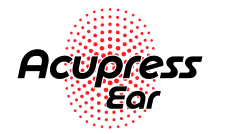In the realm of holistic healthcare, the debate between traditional medicine and alternative therapies like acupressure has been ongoing. Both offer unique perspectives and methodologies for treating ailments, but understanding the differences and similarities between them is crucial for making informed healthcare choices.
What is Acupressure?
Acupressure is an ancient healing art that originated in China over 5,000 years ago. It involves applying pressure to specific points on the body known as acupoints to stimulate the body's natural healing abilities. These acupoints are believed to be connected by pathways called meridians, through which vital energy, or Qi, flows.
Unlike acupuncture, which uses needles to stimulate these points, acupressure relies solely on the pressure applied by fingers, hands, elbows, or devices. It is a non-invasive and gentle technique that can be easily learned and self-administered.
Traditional Medicine: A Holistic Approach
Traditional medicine encompasses a broad range of healing practices that have been developed over centuries within various cultures worldwide. From Ayurveda in India to Traditional Chinese Medicine (TCM) and beyond, traditional medicine approaches health from a holistic perspective, focusing on the interconnectedness of the body, mind, and spirit.
One of the key principles of traditional medicine is the belief in the body's innate ability to heal itself when provided with the right support and balance. This can include lifestyle modifications, herbal remedies, dietary changes, and physical therapies like massage and acupuncture.
Key Differences and Similarities
While traditional medicine and acupressure share some common ground in their holistic approach to health and emphasis on natural healing, they differ in their techniques and theoretical frameworks.
Traditional medicine often relies on a combination of therapies tailored to the individual's specific needs, whereas acupressure focuses primarily on stimulating acupoints to restore balance to the body's energy flow.
Another distinction lies in the diagnostic methods used. Traditional medicine often employs a variety of diagnostic tools, including pulse reading, tongue examination, and questioning about symptoms and lifestyle, to identify the underlying causes of illness. Acupressure, on the other hand, typically follows the principles of TCM, which involves diagnosing imbalances in the body's energy based on patterns of symptoms and applying pressure to corresponding acupoints.
Integration for Optimal Health
Rather than viewing acupressure and traditional medicine as mutually exclusive, many healthcare practitioners advocate for an integrative approach that combines the best of both worlds. By incorporating elements of traditional medicine alongside acupressure techniques, patients can benefit from a comprehensive treatment plan that addresses their physical, emotional, and spiritual well-being.
Ultimately, whether you choose acupressure, traditional medicine, or a combination of both depends on your individual needs, preferences, and health goals. It's essential to consult with qualified healthcare professionals who can guide you in making informed decisions about your health and wellness journey.
In conclusion, the debate between acupressure and traditional medicine underscores the rich diversity of healing modalities available to us. By embracing the wisdom of ancient traditions while remaining open to modern innovations, we can cultivate a holistic approach to health that honors the interconnectedness of body, mind, and spirit.
Acupress Ear
Now meet Acupress Ear, a revolutionary product that combines the ancient holistic healing with modern technology. Acupress Ear stimulates the specific points on the ear, gently applying pressure to over 200 acupuncture points and 25,000 nerve endings. Acupress Ear is a sleek and comfortable design that is an effective solution for holistically relieving chronic symptoms such as stress, pain, sleep disorders, arthritis, fatigue, and more.




Leave a comment
This site is protected by reCAPTCHA and the Google Privacy Policy and Terms of Service apply.